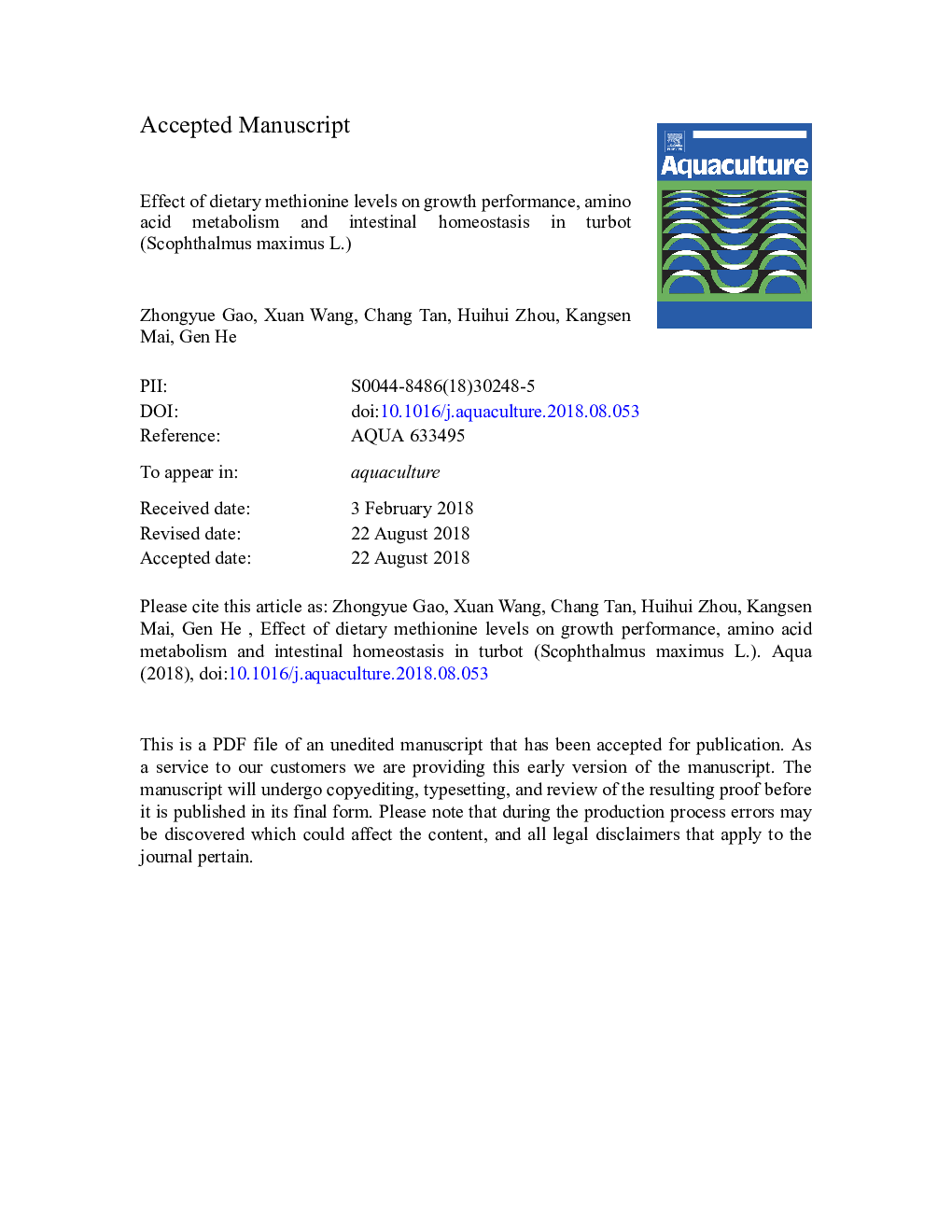| Article ID | Journal | Published Year | Pages | File Type |
|---|---|---|---|---|
| 11031925 | Aquaculture | 2019 | 42 Pages |
Abstract
Methionine is one of the most limited factors in plant-based feed for fish. It plays critical roles in fish growth performance and feed utilization. However, little is known about its effects on amino acid metabolism and intestinal homeostasis in turbot. In this study, an 8-week feeding trial was conducted to examine the nutritional physiology of turbot fed with diets containing deficient (0.85%, LM), adequate (1.82%, MM) or excess (2.80%, HM) levels of methionine respectively. After the feeding trial, fish growth and feed efficiency were significantly reduced by LM diet while no significant difference was observed between MM group and HM group. Methionine deficiency diet also led to a reduction of free Met, Cys, Thr, Arg and His levels in plasma, while an elevation of Gly, Lys and Ala concentrations. The Asp and Gly levels in HM group were significantly lower than other groups. The mRNA expression of cystathionine β-synthase (cbs) and s-adenosylmethionine decarboxylase (samdc) in LM group were up-regulated while the expression of methionine synthase (ms) in LM group was depressed. The expression of ornithine decarboxylase (odc) was not affected by dietary methionine levels. Furthermore, methionine deficiency decreased the height of intestinal villus and microvilli, as well as the number of goblet cells. The mRNA expression of proliferating cell nuclear antigen (pcna) and mucin-2 (muc-2), as well as the content of glutathione, were also induced with the methionine level in the diets. These results provide important new clues in methionine function in teleost.
Related Topics
Life Sciences
Agricultural and Biological Sciences
Aquatic Science
Authors
Zhongyue Gao, Xuan Wang, Chang Tan, Huihui Zhou, Kangsen Mai, Gen He,
